Ana McMillin sets out why diverse leadership and inclusive decision-making must be central to the conversations taking place in Leeds
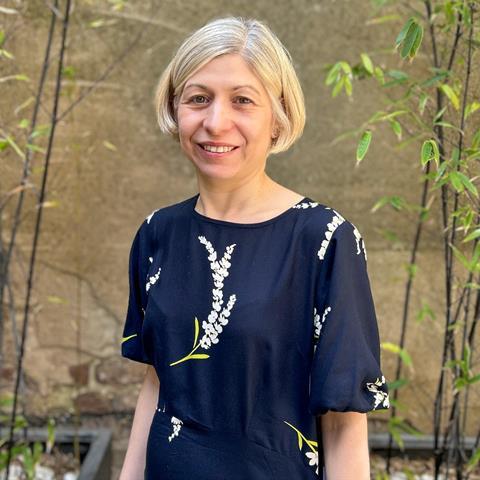
This week, thousands of real estate professionals, public sector officials and architects will travel to Leeds for UKREiiF, now a leading platform in the UK for serious conversations about the future of the built environment and, crucially, who gets to shape it.
I’m also heading up north, and I can’t hide my excitement. Why? Not because it offers another stage for the same old conversations, but because it holds the potential to finally shift narratives and influence agendas in the right direction. This is the time to embed genuine change in the industries that shape our environments, which in turn shape us as people and drive our collective prosperity.
UKREiiF has moved the conversation on from MIPIM, a distant luxurious event where a group of self-selected people, mostly men, gathered to take key decisions about our cities, towns and neighbourhoods. We are now on the edge of Leeds with an engaged audience, including young people, women, and people of all ethnic backgrounds and identities. It’s the right place for change.
The built environment has historically been imagined, financed, designed and delivered by men. As a result, it reflects their experiences, priorities and assumptions. The consequences of this are visible everywhere. Cities that feel unsafe after dark. Public spaces that do not consider the needs of parents with young children, prams, older people, or anyone whose experience of the world is shaped by vulnerability rather than authority. Streets, statues and memorials overwhelmingly dedicated to men. And this is actually holding us all back.
Within architecture’s own imagery and mythology, women have been erased, airbrushed out of photographs, omitted from prize lists, and forgotten. The quiet removal of Denise Scott Brown from Pritzker Prize recognition alongside Robert Venturi or the decades it took for Patty Hopkins to be acknowledged properly are not isolated oversights. They are symptoms of a sector unwilling to confront its own biases.
The places we create either expand or restrict opportunities
I have worked in the built environment long enough to see countless attempts to address gender inequality. Reports are published, statistics updated, commitments drafted. And yet, the structural biases embedded within our sector remain largely intact.
The data is not missing. The Fawcett Society and others have done an exceptional job in compiling the numbers: women continue to be paid less, underrepresented in senior roles, and routinely overlooked in the narratives of our profession’s history. “Women and other underrepresented groups have been left out of the decision-making conversations, their lived experiences ignored, and the complex issue of inequality is perpetuated by the very form of our built environments.
The places we create either expand or restrict opportunities. They either support people’s wellbeing or neglect it. They reinforce social structures or help dismantle them. They create or hold back prosperity.
The time for change is now. And for change to take root, we must stop looking at gender diversity as a side project or a checkbox to be ticked. Incremental change has not been enough. We need sustained, collective action and a willingness to confront inconvenient truths about how our industry operates.
Too many organisations remain satisfied with surface-level pledges while leaving the underlying culture untouched. Gender and other biases are still deeply embedded in real estate industries, affecting our cities, towns and neighbourhoods. Confronting them requires more than just a few well-meaning initiatives or diversifying panels. It demands systemic change and genuine participation from all voices in shaping where we live.
Equality in our sector isn’t just a social justice imperative, it’s also an economic one
The shift can happen if there is real willingness to have this serious conversation about the future of our built environment as a mature and inclusive society. Diversely informed perspectives must be inherent, natural to every built environment conversation and its transformation.
Research shows that diverse teams are better equipped to solve complex problems, drive innovation, and achieve outcomes and impact. To shape inclusive cities, towns and neighbourhoods, we must change who makes them. That means not only increasing the visibility and participation of women and people from other underrepresented backgrounds in leadership, but ensuring decision-making is informed by genuine understanding of different lived experiences.
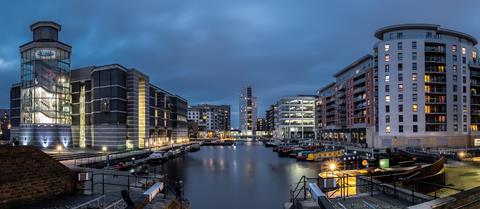
An inclusive world benefits everyone. Equality in our sector isn’t just a social justice imperative, it’s also an economic one. Inclusive built environments will engage more groups in economic activity, raise productivity and create both social value and financial gains. They expand employment opportunities, nurture skills, reduce poverty and inequality, and contribute to stronger local economies.
Organisations such as Women in Architecture (WIA) and others will be hosting panels and roundtables in Leeds this year about transforming real estate for a prosperous future, talking about the all-encompassing value of a diverse sector to organisations and communities alike. It will not be another polite celebration of female success, but a sharp examination of the barriers that remain and the partnerships needed to dismantle them in order to drive both social impact and economic value for all.
Let’s not shy away from the serious conversation we need to have when we meet in Leeds
These will not be just events, but spaces that diverse groups have long fought to create and now occupy with purpose, shaping the legacy of our shared future. The conversations will be designed to inspire action, to encourage both men and women in positions of power to rethink the systems that have traditionally excluded so many talented people and held back economic and social value creation for everyone.
At UKREiiF this year, we have a unique opportunity to shape a future where the built environment better serves all of its citizens. By promoting gender equity in the professions that create and shape our cities, we are not just improving this sector but advancing society as a whole. The built environment has the power to shape prosperity and it is time we ensure it is a force for good, for everyone.
Whether you are a developer, planner, public sector official or architect, your work impacts lives in profound ways. I encourage everyone in the industry to reflect on their role and head to Leeds with an open mind. Let’s work together, ensure that the places we create reflect the diversity of the people who inhabit them and unlock the opportunities that all people deserve.
Let’s not shy away from the serious conversation we need to have when we meet in Leeds. I hope to see you there.
Postscript
Dr Ana McMillin is a director at Broadway Malyan and a Women In Architecture steering committee member



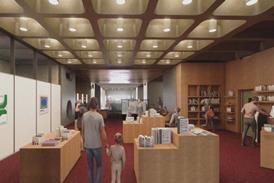
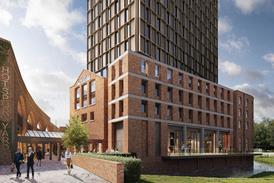
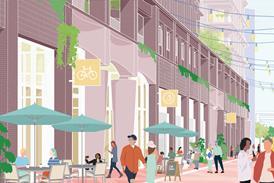










1 Readers' comment